Feb 14, 2022
What are the Rights of Press in India?
Malavika Rajkumar
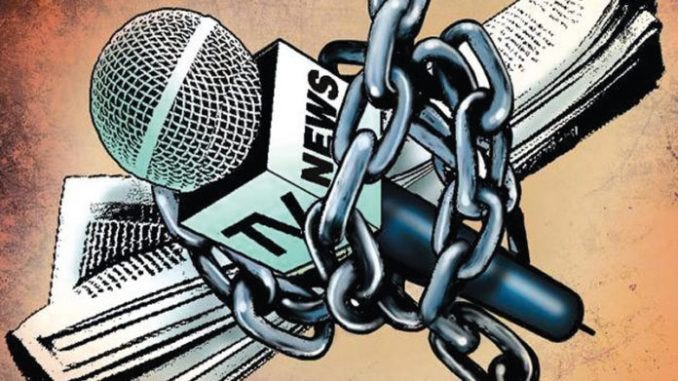
May 3 or #WorldPressFreedomDay acts as a reminder to governments of the need to respect their commitment to press freedom, and is also a day of reflection among media professionals about issues of press freedom and professional ethics. Today, Nyaaya brings to you a list of rights which the press have in India.
The rights of the press in India arise out of the freedom of speech and expression under Article 19(1)(a) of the Constitution. The press have a variety of rights including the right to publish, right to circulate, right to receive information, right to advertise, right to dissent, etc.
Defamation and Free Press
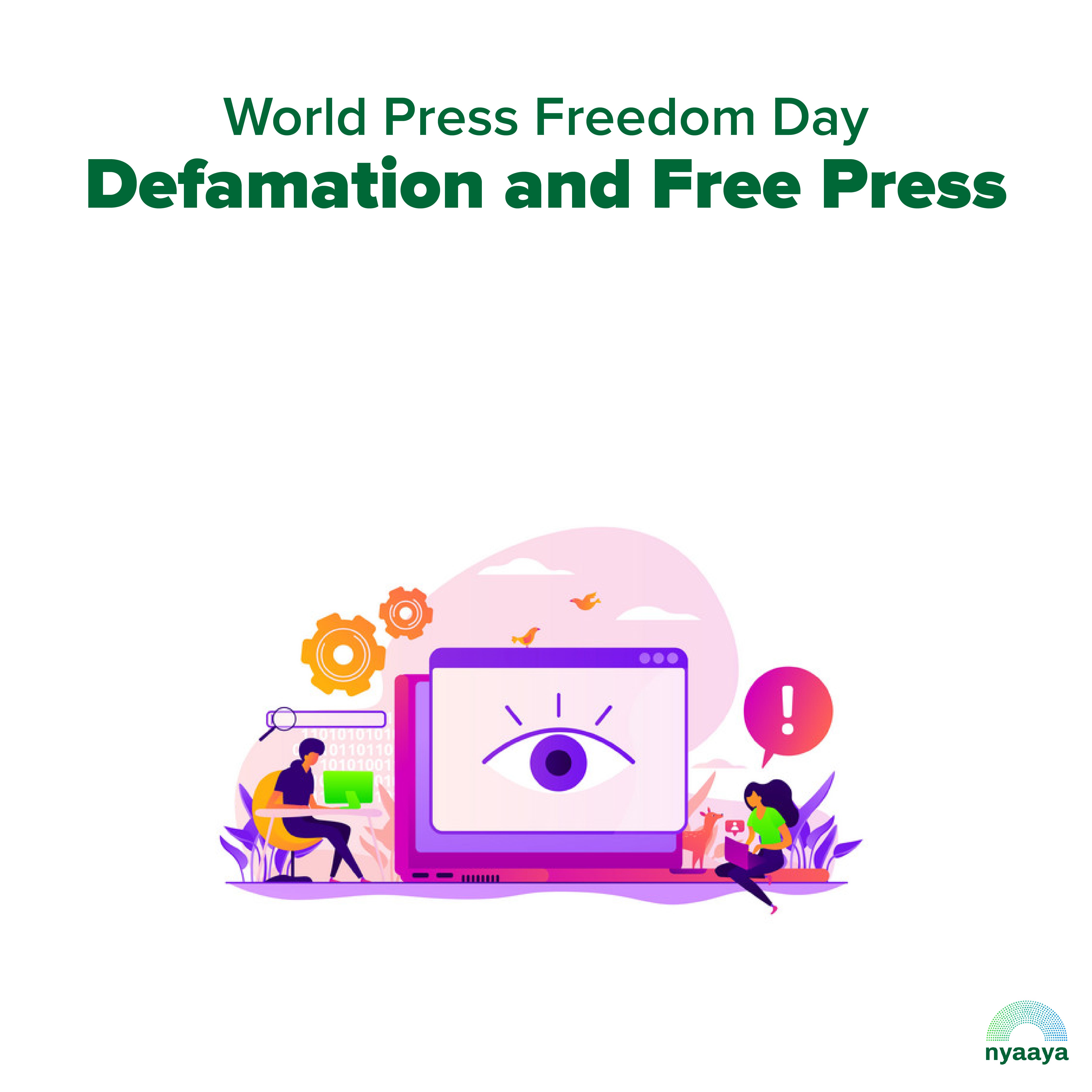
The advancement of technological revolution in the field of mass media and communication has facilitated the spread of information through written, oral and visual media to millions of people. This in turn increases an individual’s risk to defamation.
Saying or writing something which is harmful to a person’s reputation is called defamation, and is a crime under Section 499 of the Indian Penal Code, 1860. It’s against the law to intentionally harm someone’s reputation, cause them to be hated or disgraced through text, image, cartoons, caricatures or effigies.
Generally newspapers and members of the press are prosecuted under this law for critiquing individuals. If the critique was made in good faith or related to a matter of serious public interest, then it will not be an act of defamation. To understand more on defamation see here.
Freedom of Speech and Expression

The press and media have the same rights — no more or no less than any individual to write, publish, circulate and broadcast information. The press derives this right from the right to freedom of speech and expression in Article 19(1)(a) of the Constitution of India, 1950.
The freedom of speech and expression involves the right to express by word of mouth, writing, printing, pictures or any other manner. It includes the freedom of communication and the right to propagate or publish one’s view.
The only restrictions available under the Constitution which can be imposed on this right are those given under Article 19(2), which constitute reasonable restrictions, on grounds of — the interests of the sovereignty and integrity of India, the security of the State, friendly relations with foreign States, public order, decency, morality, or in relation to contempt of court, defamation or incitement to an offence.
Right to Publish and Circulate
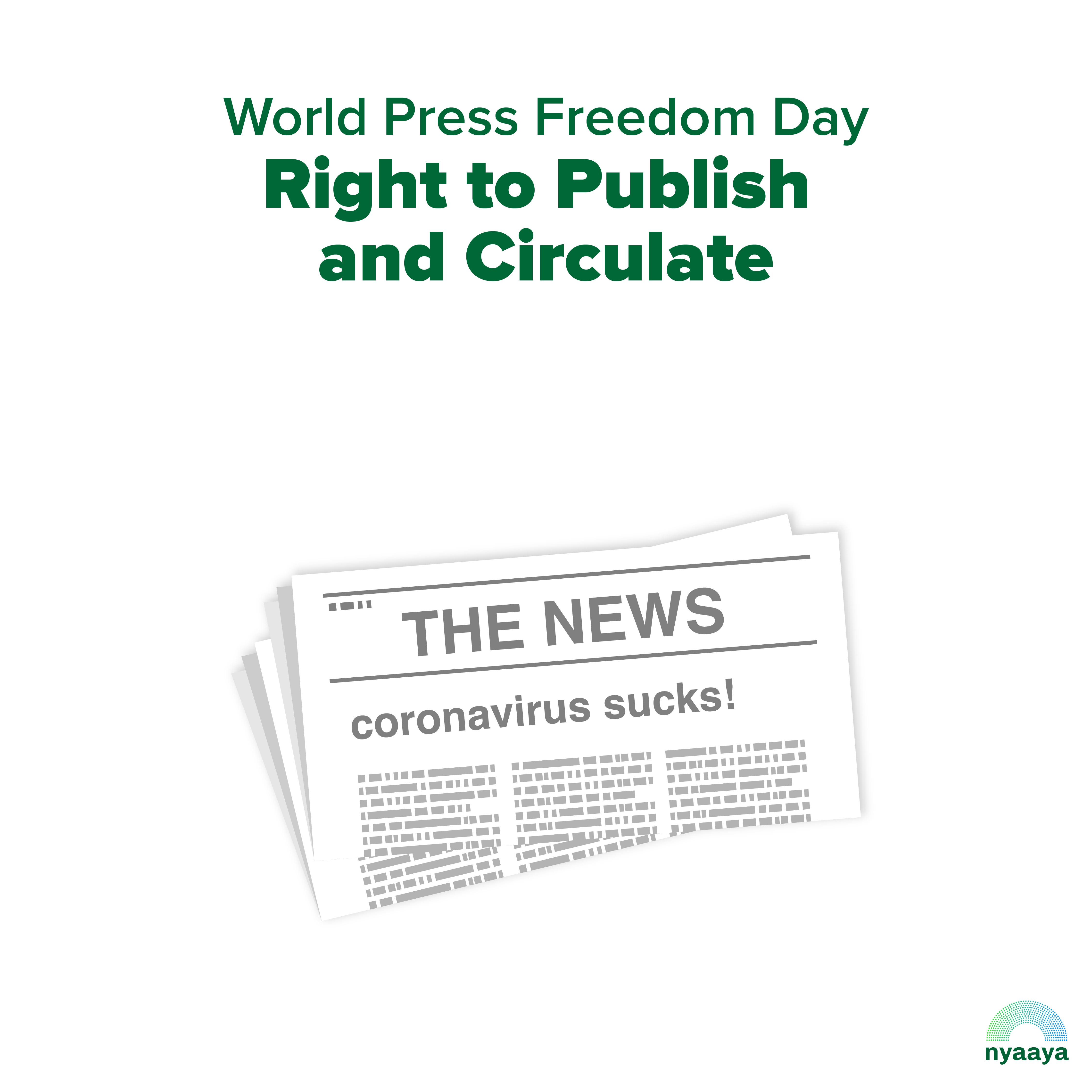
The right to free speech and expression which the press have includes the right not only to publish but also to circulate information and opinions. Many cases including Romesh Thappar v State of Madras (1950) have held the freedom of circulation to be as essential as the freedom of publication.
The Supreme Court in the case Bennet Coleman and Co. v Union of India (1972) held that newspapers should be left to determine their pages and their circulation. The same principle was upheld in Sakal Papers v Union of India (1962) where the Supreme Court stated that States cannot make laws which directly violate the freedom of speech and expression guaranteed under the Constitution.
The right to circulate of the press also includes the freedom to decide the volume of circulation. This right can only be restricted if it goes against the reasonable restrictions given in Article 19(2) of the Constitution of India which includes security of state, public order etc.
Sedition and the Right to Dissent
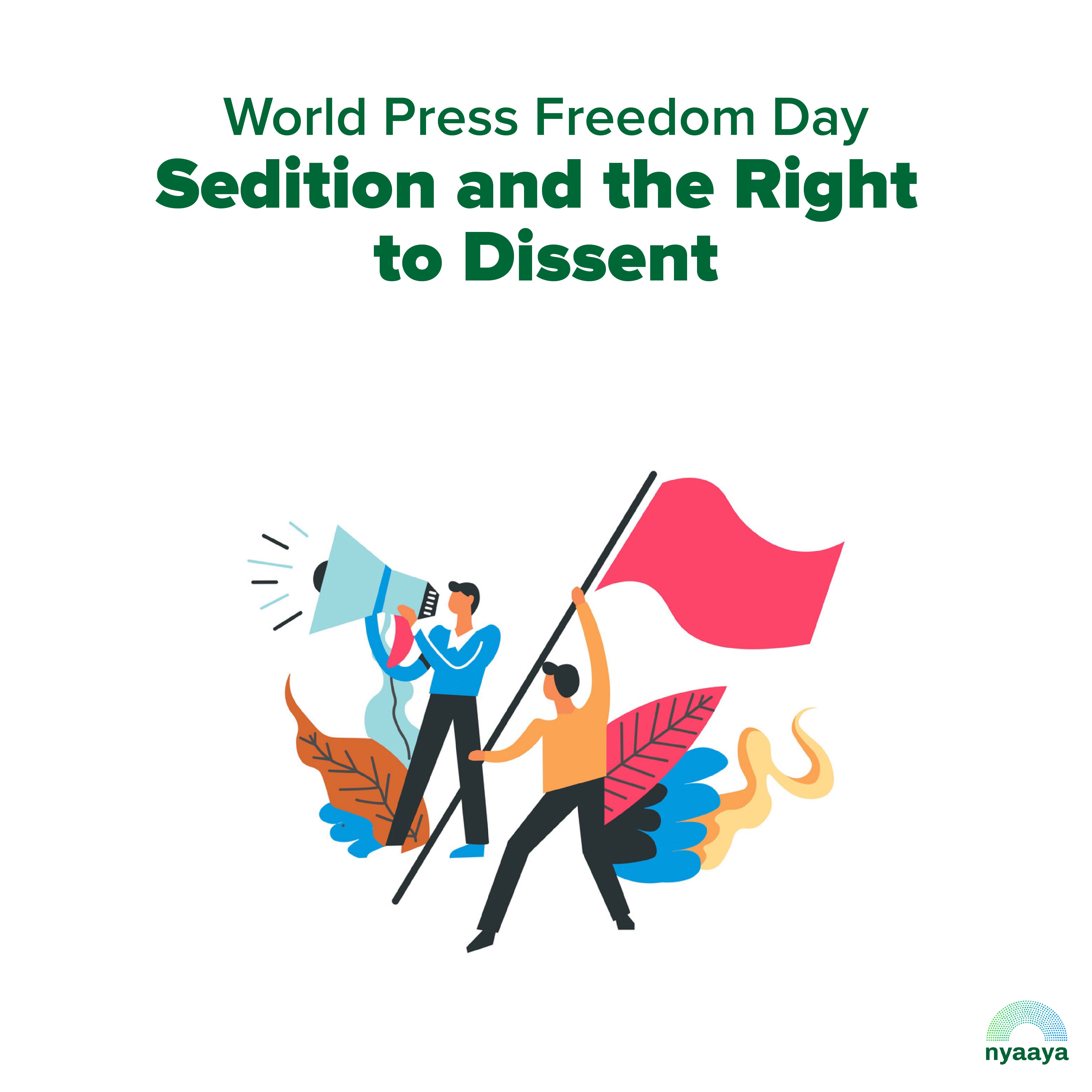
Freedom of speech and expression under Article19(1)(a) of the press also covers the right to criticize the government as well as the right to hold unpopular or unconventional views. The law commonly used to curtail such criticism is known as the sedition law under Section 124-A of the Indian Penal Code, 1860.
When anyone tries to bring hatred or contempt or excites disaffection towards the government through speech, words or gestures, they have committed an act of sedition. The punishment for sedition is three years jail time which can extend to jail for life, along with the fine. Read more here.
Even though FIRs are commonly filed using the sedition law against the press, Courts have held that commenting in strong terms upon the measures or acts of Government, or its agencies is not the same as disloyalty towards the Government. As long as the words used by a person do not lead to people feeling enmity and disloyalty towards the Government and public disorder or use of violence, it is not an act of sedition.
Right to Receive Information
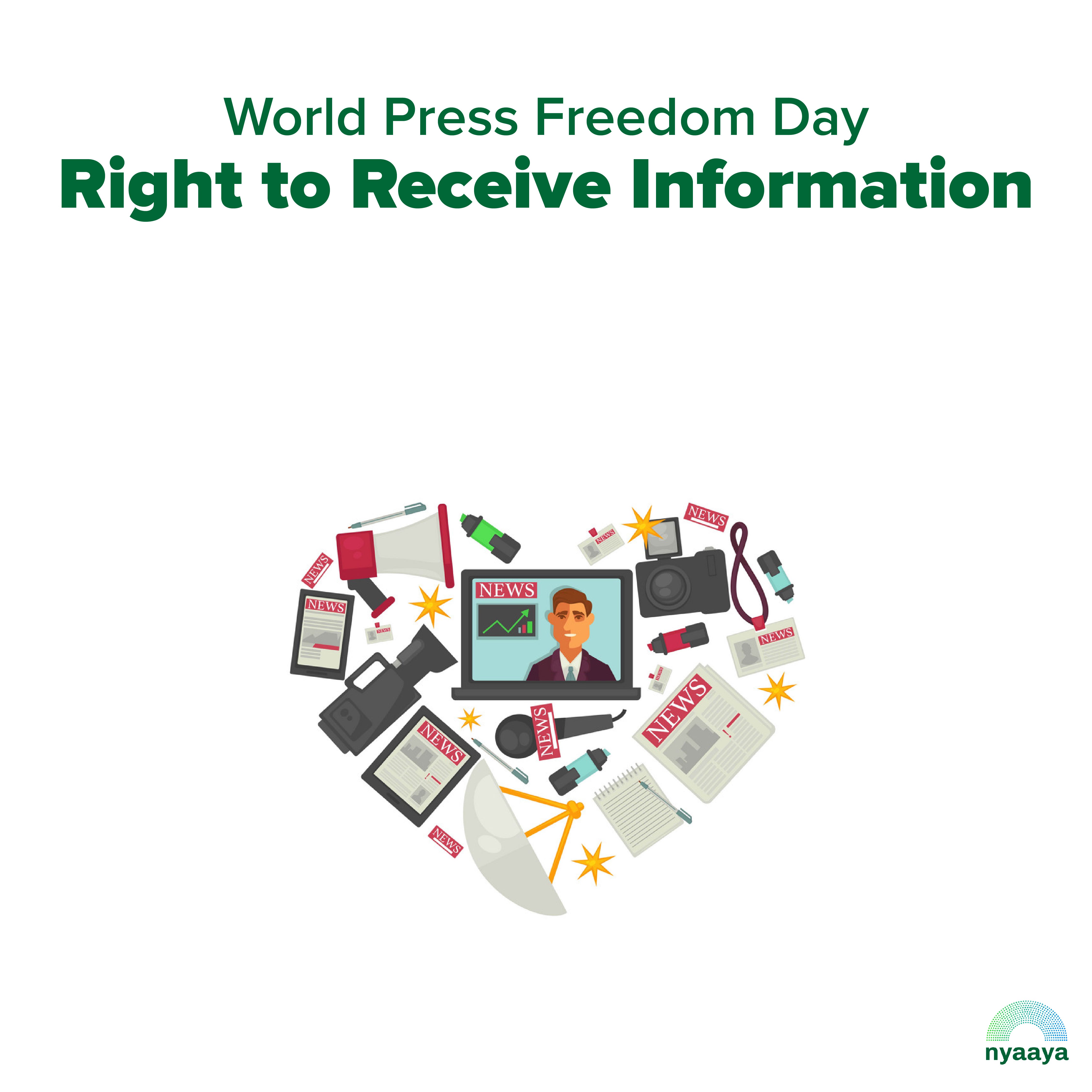
The freedom of speech and expression comprises not only the right to express, publish and propagate information through circulation but also to receive information. Indian citizens including the press have the right to ask for information from public bodies through the Right to Information Act, 2005.
Any citizen, including the press can make an application for information and can access information such as details of project budgets, implementation status, the status of any complaint/application they have made to any government body. Such an application is commonly referred to as an RTI or RTI application. Read more here.
The Supreme Court through various cases has discussed the right to information in various contexts including the right of voters to know the antecedents of electoral candidates, the right of sports lovers to watch cricket, the right of citizens to get vital information about life-saving drugs etc.
Right to Conduct Interviews
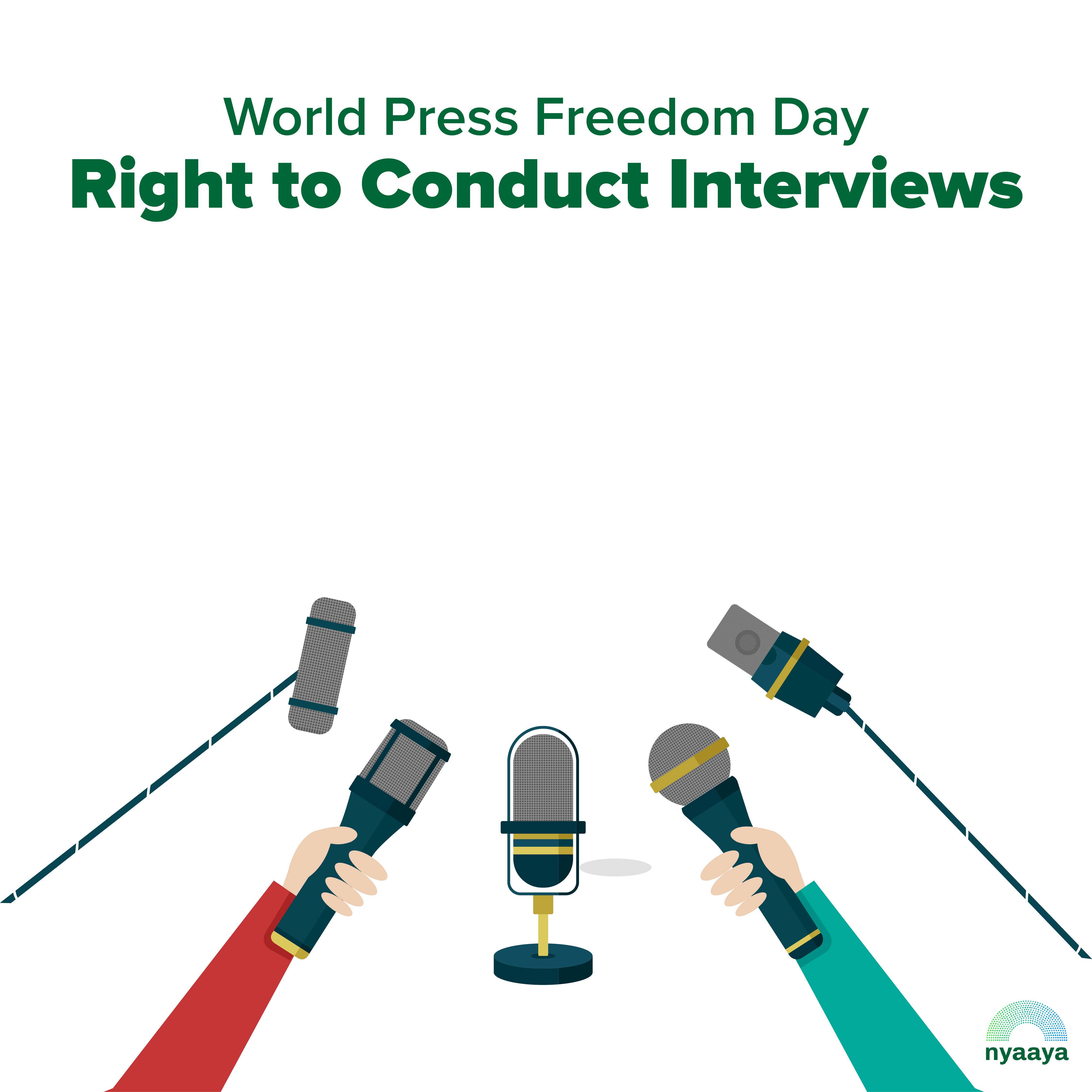
The right to conduct interviews is a limited right of the press and can only be exercised if there is willing consent from the person being interviewed. There are several cases of the Supreme Court where the right of the press to interview convicts or undertrials has been examined.
In Prabha Dutt v Union of India (1982) the press was seeking to interview prisoners in jail. The Court held that the press does not have an absolute or unrestricted right to information and an interview may be conducted only if the prisoners give their consent.
In State v Charulata Joshi (1999) the Supreme Court granted permission to interview Babloo Srivastava in Tihar Jail but stated that the undertrial prisoner can only be interviewed or photographed if he expressed his willingness to be interviewed.
Right to Report Court Proceedings
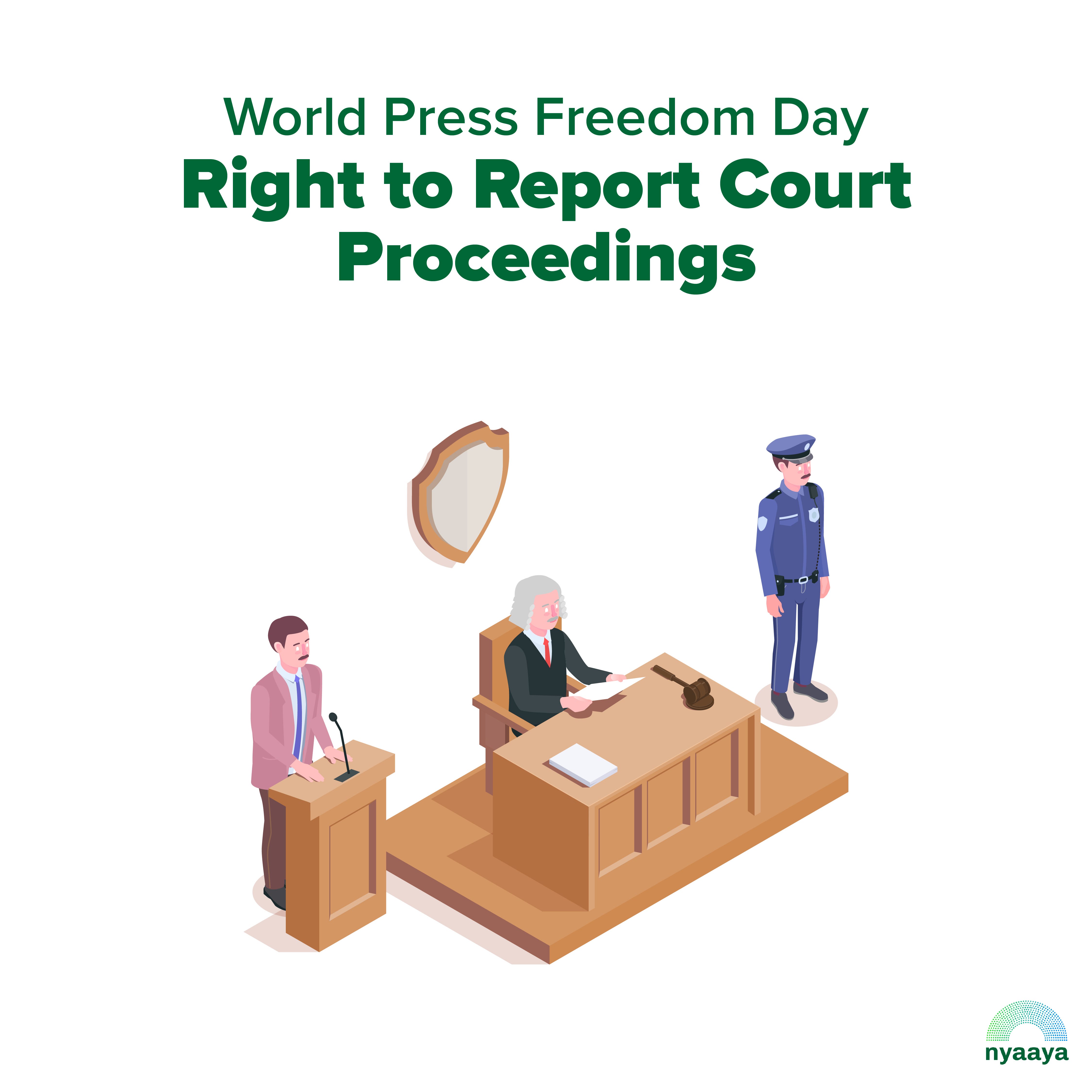
Journalists have the right to attend proceedings in court and the right to publish a faithful report of the proceedings witnessed and heard in Court. Courts also have the power to restrict the publicity of proceedings in the interest of justice.
The Supreme Court case Naresh Shridhar v State of Maharashtra (1967) clarified this further stating that Courts can hold “in camera proceedings”, restricting access to the public and the press, where the Court feels that justice would be defeated if the case were to be tried in open Court.
The Supreme Court in Sahara Real Estate v. SEBI (2012) held that Courts also have the power to pass orders to postpone the reportage by the press for a limited duration in the interest of justice.
The press also have a right to report legislative proceedings of the Parliament and State Assemblies as long as the publication is untainted by malice. This is a right that is also given in the Parliamentary Proceedings (Protection of Publication) Act, 1977.
Right to Advertise

The freedom of speech and expression under Article 19(1)(a) of the Constitution of India, 1950 also includes the right to advertise or the right of commercial speech. This right was upheld in the case of Tata Press Ltd v. MTNL (1995).
The Supreme Court in Hindustan Times v State of UP (2003) discussed the important role advertisements play in generating revenue and how they have a direct impact on circulation, thus reiterating the right to advertise in newspapers.
The Supreme Court in Sakal Papers v Union of India (1962) stated that the curtailment of advertisements is a violation of the freedom of speech and expression under Article 19(1)(a) of the Constitution of India, 1950 as it would have a direct impact on the circulation of newspapers.
Malavika Rajkumar is a Content Lead at Nyaaya. Views are personal.